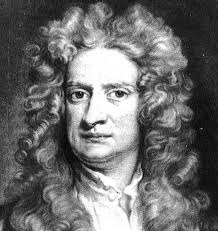March 31, 2018:
On the occasion of Good Friday and the First Seder, we toast Sir Isaac Newton, the father of modern physics who also happened to be a preeminent scholar of Christianity and Judaism. As a side note, today is the 391st anniversary of Newton’s death.
Newton was born in Woolsthorpe Manor, England on January 4, 1643, one year after the death of Galileo Galilei. Galileo became a central figure of the 17thcentury scientific renaissance when he refined the heliocentric theory of the universe proposed by the 16th century astronomer Nicolaus Copernicus. Heliocentrism asserted that the Earth and planets revolve around the sun, directly contradicting the ancient theory of geocentrism which taught that the Earth was the center of the solar system.
If Galileo and Copernicus ignited the scientific renaissance in Europe, it was Newton who would help propel a scientific revolution. Newton began his studies at Cambridge in 1661 but the advent of the Great Plague in 1665 forced Cambridge to send its students home for several years. While at home, Newton saw an apple fall from a tree and wondered why the apple fell straight down and not at an angle. This inspired him to study the theories of motion and gravity which had also been studied by Galileo. This path led to some of Newton’s most important discoveries including the method of infinitesimal calculus, the foundations of light and color, and the laws of planetary motion.
Newton returned to Cambridge to complete his scientific curriculum and enthusiastically pursued philosophical and religious studies. After graduating, Newton became a prolific writer of philosophy, mathematics and science publications. He also began a pattern of behavior where he attacked anyone who questioned his theories. He constantly accused fellow scientists of betrayal and conspiracy. The signs of mental illness that he exhibited help explain his lack of friends and his inability to find a mate. He suffered several nervous breakdowns and withdrew from society for years at a time.
Principia
In August 1684, fellow physicist and mathematician Edmond Halley (as in the comet) convinced Newton to end six- years of seclusion and get back to his intellectual pursuits. As a result, Newton produced his most acclaimed work, “Philosophiae Naturalis Principia Mathematica” where Newton laid out his three basic laws of motion.
1) A stationary body will stay stationary unless an external force is applied to it.
2) Force is equal to mass times acceleration, and a change in motion is proportional to the force applied.
3) For every action, there is an equal and opposite reaction.
Newton’s three basic laws of motion became the basic principles of modern physics and led to Newton’s law of universal gravitation which states: “Two objects attract each other with a force of gravitational attraction that’s proportional to their masses and inversely proportional to the square of the distance between their centers.” These findings helped explain the orbits of planets, the revolution of the moon around Earth, and how the gravitational pull of the sun and moon create the Earth’s tides.
Religious Studies
In his later years, Newton spent less time on scientific problems in favor of studying prophecy, scripture and alchemy (attempting to turn base metals into gold). He was so enthralled by the Bible that he learned Hebrew, thinking that it would help him find hidden meanings. One observation that he probably considered the capstone of his life’s work was “Gravity explains the motion of the planets but it cannot explain who set the planets in motion. God governs all things and knows all that is or can be done.”
When Newton died in 1727 at the age of 84, the government blocked the publication of several of his papers due to controversial subject matter. In 1936, Sotheby’s auction house sold the papers to the 20th century’s most influential economist, John Maynard Keynes. One paper revealed Newton’s belief that God had chosen him specifically to interpret the Bible and Newton’s conclusion that the world will end no sooner that 2060 (although I suggest that you continue to use up your airline miles).
About those three guys in the bar
Newton was very puritanical but did frequent taverns in disguise when he was serving as Master of The Royal Mint. His purpose was to gather evidence against counterfeiters. Your better choices to join you at the bar would be Galileo who observed “Wine is sunlight, held together by water” or Keynes who stated “My Only Regret in Life Is That I Did Not Drink More Champagne”
Happy Passover and Happy Easter.
If you are looking for top-notch marketing support, contact ted@blackdotmessaging.com |